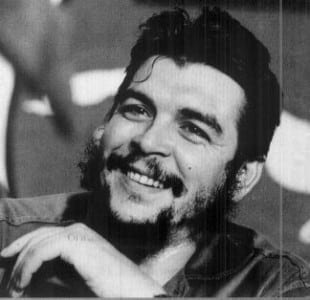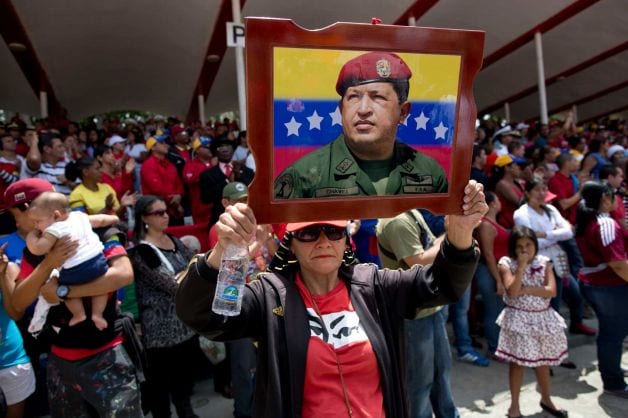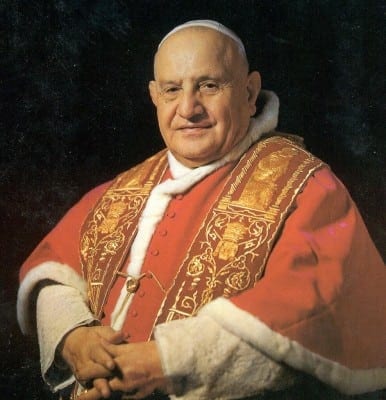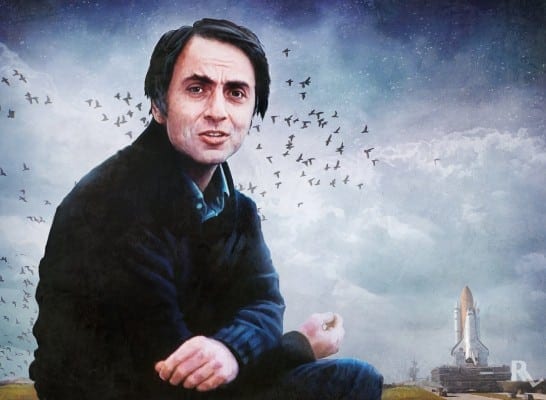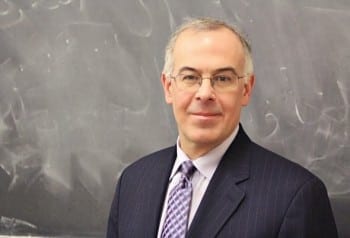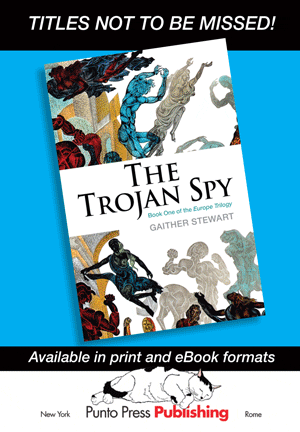

//
by ANDRE VLTCHEK
“We will get rid of Morales”, he told me, openly. “Because he is a dirty Indian, and because we will not tolerate lefties in this part of the world.”
For now, Argentina is lost and Venezuela is deeply wounded, divided and frustrated. Virtually everywhere in socialist Latin America, well-orchestrated and angry protests are taking place, accusing our left-wing governments of mismanagement and corruption.

What was gained during those years of hard work and sacrifices, is suddenly evaporating in front of our eyes. And there seems to be no way to stop the trend in the foreseeable future. Whatever magnificent work our governments have done has been smeared. Western propaganda and its local serfs belittle the achievements of our people. In several countries, revolutionary zeal has almost entirely vanished.
But it is clear, even with an unarmed eye, that great progress had been made. Those of us who knew Ecuador two decades ago, (then a depressing country, humiliated and torn by disparities and racism), are now impressed by its wonderful social services, free culture and modern infrastructure.
The indigenous people of Bolivia are proudly in possession of their own land.
Venezuela has been inspiring all of Latin America and the world by its internationalism and determined struggle against Western imperialism.
Chile, step by small step, has been dismantling the grotesque legacy of Pinochet’s dictatorship, moving firmly towards socialism.
There are hundreds of great and inspiring examples, all over the continent.
In less than two decades, Latin America converted itself from one of the most depressing parts of the world, to the most progressive one.
[dropcap]A[/dropcap] few years ago, it really seemed that the Empire had finally lost. There was no way that South Americans would want to go back to the days of darkness. The achievements of socialism were too obvious, too marvelous. Who would want to go back to the gloomy nihilism, depressing feudal structures and the fascist client-state arrangements?
It was the Soviet Union that stood in solidarity with almost all revolutionary movements of Latin America throughout the 20th century. And it was Russia that was backing Chávez during the countless Western attempts to overthrow his government.
Then the Empire re-grouped. It gathered its local lieutenants, its lackeys, and began striking back with deadly force.
All the means of imperialist propaganda were applied. The goal was to convince people that what they see is not actually real. Another objective was to subvert, to torpedo most of the achievements.
We lost elections? What nonsense!
It was clean economic and political terror unleashed against us, and it was the most vicious propaganda, which began forcing out the left wing governments of Latin America from power!

Ecuador’s Rafael Correa. A much maligned charismatic leader.
The world was watching, still demanding more Western-style “democracy”, more concessions. The West administered a “Fifth Column” that damaged Latin American revolutions, after infiltrating both media and brains in Caracas, Buenos Aires, even Quito. It consisted especially of the liberals and those so-called ‘progressive forces’; the same people who tried to bury the Cuban revolution after the Soviet Union had been destroyed by Western imperialism. The same people actually who were cheering the demolition of the Soviet Union itself.
They kept pushing for anarchism and for some formulae of “participatory economy”, in fact for their own concepts, for Western, white concepts, for something that most of Latin American people who fought and won their revolutions never asked for!
Jealous and petty, they hate the true powerhouses of resistance against Western imperialism: Russia, China, Iran or South Africa and in fact, even Latin America itself.
Latin American people have always been intuitively longing for big, strong governments, like those in Cuba and those that lately emerged in Venezuela, Bolivia and Ecuador. And their natural allies should have been those countries from other, non-Western parts of the world, with powerful people-oriented leadership, not some European and North American individuals representing grotesque and defunct movements and “intellectual” concepts.
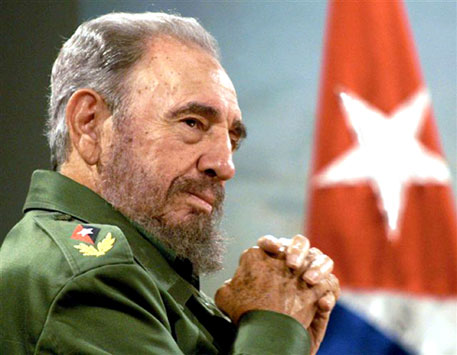
In several countries, Latin America lost its way and again got derailed by Western demagoguery. Suddenly there was almost nothing left here of Chinese or Russian or Vietnamese ideas, nothing of internationalism, only Western soft liberal egotists and countless irrelevant marginal groups.
History was forgotten. It was simple, decisive and powerful action by China that single-handedly saved Cuba, when the island-nation was hit by the Gorbachev and Yeltsin disasters. I wrote about it a lot, and Fidel quoted me, agreeing in his “Reflections”.
It was the Soviet Union that stood in solidarity with almost all revolutionary movements of Latin America throughout the 20th century. And it was Russia that was backing Chávez during the countless Western attempts to overthrow his government.
What are we waiting for? Of what are we afraid? That the biggest terrorist on Earth – the West – would brand us as undemocratic?
Playing with anarchism, liberalism and Euro-socialist concepts brought several Latin American revolutions to the brink of absolute calamity.
South America is at the frontline. It is under attack. There is no time for the flowery theories.
I know Latin American revolutionaries. I have met many, from Eduardo Galeano to several Cuban and Sandinista leaders.
I also met many of the South American ‘elites’.
One day, not long after Evo Morales came to power in Bolivia, I spoke to a man, a member of one of the ‘leading’ families, which has in its ranks Senators, owners of mass media outlets, as well as captains of local industry.
“We will get rid of Morales”, he told me, openly. “Because he is a dirty Indian, and because we will not tolerate lefties in this part of the world.”
He was not hiding his plans – he was extremely confident.
“We don’t care how much money we have to spend; we have plenty of money. And we have plenty of time. We will use our media and we will create food and consumer goods deficits. Once there is nothing to eat, once there are food lines in all the major cities, as well as great insecurity and violence, people will vote him out of power.”
It was clearly the concept used by the Chilean fascist economic and political right wing thugs, before the 1973 US-backed coup against President Salvador Allende. “Uncertainty, shortages”, and if everything failed – then a brutal military coup.

Thatcher and Pinochet: lovey-dovey. Never mind those ugly, pesky accusations about wholesale torture and murders under his rule. The West regarded the dictator as “their” man in Santiago.
In Bolivia the “elites” tried and tried, but they were not successful, because there was great solidarity with the government of Evo Morales, coming from socialist countries like Brazil and Venezuela. When the Right tried to break the country to pieces, pushing for the independence of the richest, “white” province of Santa Cruz, Brazilian President Lula declared that he was going to send the mightiest army in the South American continent and “defend the integrity of the neighboring country”.
[dropcap]I[/dropcap]t is beasts, and actually extremely powerful beasts, who are heading the “opposition” in South America.
And to be frank, we can hardly speak about an “opposition”. These are oligarchs, landowners, Christian (many from the Opus Dei) demagogues and military leaders. In many ways they are still the true rulers of the continent.
Nothing except brute force can stop them. They have unlimited financial resources, they have a vast and well entrenched propaganda machine at their disposal, and they can always count on the Empire to back them up. In fact it is the Empire that is encouraging, training and sustaining them.
“The white, racist, colonialist Christian implants from Europe have been forming so-called South American ‘elites’. They are actually some of the cruelest human beings on Earth…”
“Violations of democracy and human rights!” the “opposition” yells, whenever our governments decide to hit back. It is not that we are lately hitting back really hard, but any retaliation is packaged as “brutal”.
What do we in fact do? We arrest just a few of the most outrageous terrorists – those who are openly trying to overthrow or destabilize the state.
But when they, the ‘elites’ and their armies, came to power, they cut open people’s stomachs, and threw them from helicopters straight into the sea.
Their death squads violate children in front of their parents. Female prisoners are raped by specially trained German shepherds dogs, and tubes with starved rats are inserted into their vaginas.
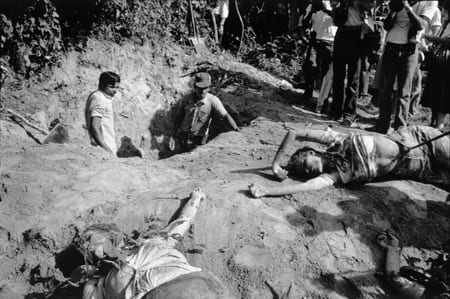
1980: Salvadoran death squads spared no one, not even US religious. Under the criminal Reagan regime, four nuns were raped and murdered obviously as a warning to other “meddling” Americans. UN Ambassador Jeane Kirkpatrick famously declared that it was all “their fault.”
Entire movements and parties are liquidated by fascist South American death squads (some of them trained in the United States), but we must use some nice and clean tactics and “democratic means” to prevent them from grabbing power again?
The white, racist, colonialist Christian implants from Europe have been forming so-called South American ‘elites’. They are actually some of the cruelest human beings on Earth. Thanks to them, before our latest wave of Revolutions, Latin America suffered from the greatest disparities on earth. Tens of millions of its people were murdered. It was racially divided. It was plundered. Its veins were, and to a great extent still are, open – to borrow from the terminology of the great storyteller Eduardo Galeano.
My friend Noam Chomsky wrote about it extensively. I wrote about it in several chapters of my two latest books: : “Exposing Lies Of The Empire” and “Fighting Against Western Imperialism”. Others have as well.
How can people still listen to those mass murderers, with a straight face?
***
One thing cannot be disputed: only a big and powerful government and its army could now defend its people. Latin American revolutionary leaders were given a mandate by the people, and they have no right to back up, to betray.
Indecisiveness could prove lethal.
Referendum after referendum, people expressed their support for the revolutionary proceso, in Venezuela and elsewhere. Year after year the fascist “opposition” has been showing spite for the voices of the people, the same spite it has demonstrated for centuries.
Sabotage after sabotage was administered, one treasonous act after another committed. As was promised by the Bolivian ‘elites’, the Venezuelan capitalist bandits paralyzed their country by shortages. Even rolls of toilet paper became ‘a deficit’. All too familiar… Like in Chile before 1973!
The message is clear: “you want to be able to wipe your ass after shitting, then betray socialism!” Or: “You want to eat? Then down with the legacy of Chávez!”
The will of the people is being humiliated. The elites are spitting straight into the faces of the majority.
Some citizens are now voting for the right, simply because they are exhausted, because they are scared, because they see no solution. They are voting against their own will (as they used to in Nicaragua during the reign of Aleman), because if they vote for their own candidates, they would be made to eat shit, literally.
But solutions are there! They are available.
Instead of listening to some Euro-centric gurus from Slovenia or New England, the Latin American governments should ask for help and lean on such countries as Russia and China, immediately joining alternative financial institutions, forging defense treaties, working on energy and other deals with those who are actually standing up against Western imperialism.
[dropcap]L[/dropcap]atin America should never lose its independence. But with proven good friends and true powerful alliances, independence is never lost.
Our leaders should shed their dependency on the Western Left. Mainly because the Western Left does not exist anymore, with some tiny, minuscule exceptions that proves the rule. What remain are a huge army of “liberals”, and then a tremendous multitude of selfish beings defending their own interests and concepts. They are horrified of those who are truly fighting and winning; therefore they openly hate Russia, China and other non-Western nations. Frankly, they are racist. Such people cannot inspire or impress anybody, and so they are trying their luck at the distant shores, diluting determination and perverting the essence of the South American revolutions.
This is the time to be focused. South America should fight, with all its might. It is not easy, but its treasonous families, those who are destroying the precious lives of tens of millions of human beings, should be identified, arrested and tried. It should be done immediately! What many of them are actually doing is not “being in opposition”. They are interrupting the democratic process in their own countries, selling their homelands once again to foreign powers and international capital.
Mass media outlets that are spreading misinformation, lies and foreign propaganda should also be immediately identified. They should be exposed, confronted, and if their goal is to destroy the socialist fatherland, shut down. Again, this is no time for liberal niceties.
Freedom of expression has nothing to do with the freedom of using newspapers and television stations to spread fabrications, fear and uncertainty, or to call for the direct overthrow of democratically elected governments.
And in South America, entire huge international newspaper and television syndicates have been working for years and decades for one single and deadly goal – to smear and liquidate the Left, and to deliver the entire continent back to the racist, fascist foreign imperialist rulers.
It has all gone too far, and it has to stop.
A few months ago, I was riding on the impressive Sao Paulo metro system, together with my Cuban friend.
“It is much better than any public transportation network that I have seen in Europe or in the United States”, I exclaimed.
“But people in Brazil think that it is total shit”, commented my friend, laconically.
“How come?” I was shocked.
“Because they are told so on the television, and because they read it in the newspapers”.
Yes, that’s how it is! Free art, including opera, given to the Brazilian public, is nothing more than crap, if one reads the mainstream Brazilian press. Free medical care, no matter how (still) imperfect it is, is not even worth praising. Free education in so many South American countries … New transportation networks, free or heavily subsidized books, brilliant parks with brand new libraries that are mushrooming in Chile and Ecuador… Financial support for the poor, the fight to keep children in school, the fight to save the environment, countless programs to protect indigenous communities…

El Mercurio—Chile’s New York Times—owned by the powerful Edwards clan, was one of the main media tools used by the bourgeoisie during the process of destabilization of President Allende in the early 1970s, preliminary to the coup. It continues to be a mouthpiece for the propertied class, regionally and globally.
Nothing, nothing, and absolutely nothing is positive in the eyes of the pro-Western South American propagandists!
This has become one huge counter-process, financed from foreign and local sources, aimed at discrediting all those great achievements.

In the US, the Hispanic population is kept reliably misinformed via the ministrations of Telemundo and Univision, the two fiercely competitive Spanish-language networks with influence all over Latin America.
Corruption!!! That is the new battle cry of the elites and their lackeys. Accusations of corruption are fabricated or inflated against all governments of the left: Dilma Rousseff in Brazil, Rafael Correa of Ecuador, Nicolas Maduro of Venezuela, Evo Morales of Bolivia, even Michelle Bachelet of Chile. Cristina Kirchner’s back was almost broken by constant corruption charges.
But how on earth could anyone take such accusations seriously, if they are coming from those who have been plundering, for over 500 years, their own continent on behalf of Europe and then the United States and multi-national corporations? Like locust, the right-wing families have been looting all the natural resources, while forcing people into near slave labor. Under horrendous feudal and fascist rulers, Latin America was converted into the pinnacle of corruption – moral and economic.
Nothing was left intact, and nothing remained pure. In order to survive in such a vile system, people had to bend, twist, and maneuver.
Now these same bandit clans that have been destroying the continent are smearing, pointing fingers at the governments that are, step by step, trying to reverse the trend and serve the people.
The same bastards that were bombing restaurants and hotels in their own countries, planting bombs on passenger airliners, and assassinating thousands of innocent people, are talking about morality.
Are our people, our governments, expected to reach, to achieve total purity in just one or two decades, after the entire continent had been functioning for over 500 years as a bordello of Western colonialism and imperialism?
Are we going to allow ourselves to be on the defensive when facing those who robbed and raped almost everything and everybody in Latin America?

Cortés disembarks in Veracruz, beginning the Spanish conquest of Mexico. The brutality was there from the start. Mural by Diego Rivera.
[dropcap]Y[/dropcap]es, the people of Latin America were brutalized for several long centuries. They went through unimaginable suffering. They lost everything. But they never gave up. Since the holocaust performed by Spanish, Portuguese and other European barbaric conquerors, they have been rising, rebelling and fighting for their scarred land.
Pablo Neruda wrote a tremendous poem “Heights of Machu Picchu.” Eduardo Galeano wrote “Open Veins of Latin America”. It is all there, in those two tremendous works.
The fight goes on, to this very moment.
Most of the power is now, finally, in the hands of those who are determined to fight for the interests of their people.
We have no right to be defeated. If we do, hundreds of millions will lose their future and their hope.
Such an opportunity would not come back. It is here, for the first time in 500 years! Millions died to bring it here. If the Revolution is crushed now, it may not return in full force for who knows how many years. In simple terms it means that several more generations would be lost!
We have to counterattack now. What are we waiting for? Of what are we afraid? That the biggest terrorist on Earth – the West – would brand us as undemocratic? That the same West that has, for centuries, overthrown our governments, murdered our leaders as well as simple men, women and children would not give us its stamp of approval? That we would be criticized by those countries, which are still looting, violating, lying and ruining?
Our friends, our allies are not in the West. We all know how lukewarm was the support given to Venezuela, Cuba or Ecuador in Europe and North America by those “progressive forces”, and how hostile was the mainstream. We have to wake up and join forces with those who are now standing proudly and with great determination against Western imperialism and market fundamentalism.
There is no time for experiments. This is the fight for our survival!
As I wrote earlier, in order for the Revolutions to continue, we need big governments, determined cadres, loyal armies and mighty allies. We also need huge Latin American solidarity, true unity and integration. One monolithic South American block in fraternal embrace with other truly independent countries.
This is an extremely serious moment, Comrades! This is damn serious.
Anarchism and the concepts of the factories administered by workers will not save us right now.
Argentina has fallen, but Venezuela is still standing. Each creek, each boulder has now to be defended, be it in Brazil, Uruguay, Ecuador, Bolivia, Chile, Venezuela, Nicaragua or Cuba.
We have to be tough, we have to be alert, and we cannot do it alone!
Venceremos nuevamente, camaradas!
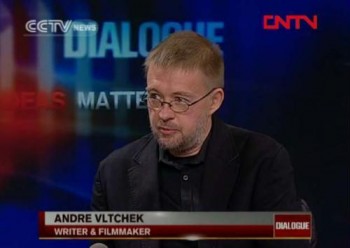 is a philosopher, novelist, filmmaker and investigative journalist. He has covered wars and conflicts in dozens of countries. His latest books are: “Exposing Lies Of The Empire” and “Fighting Against Western Imperialism”.Discussion with Noam Chomsky: On Western Terrorism. Point of No Return is his critically acclaimed political novel. Oceania – a book on Western imperialism in the South Pacific. His provocative book about Indonesia: “Indonesia – The Archipelago of Fear”. Andre is making films for teleSUR and Press TV. After living for many years in Latin America and Oceania, Vltchek presently resides and works in East Asia and the Middle East. He can be reached through his website or his Twitter.
is a philosopher, novelist, filmmaker and investigative journalist. He has covered wars and conflicts in dozens of countries. His latest books are: “Exposing Lies Of The Empire” and “Fighting Against Western Imperialism”.Discussion with Noam Chomsky: On Western Terrorism. Point of No Return is his critically acclaimed political novel. Oceania – a book on Western imperialism in the South Pacific. His provocative book about Indonesia: “Indonesia – The Archipelago of Fear”. Andre is making films for teleSUR and Press TV. After living for many years in Latin America and Oceania, Vltchek presently resides and works in East Asia and the Middle East. He can be reached through his website or his Twitter.
Note to Commenters Due to severe hacking attacks in the recent past that brought our site down for up to 11 days with considerable loss of circulation, we exercise extreme caution in the comments we publish, as the comment box has been one of the main arteries to inject malicious code. Because of that comments may not appear immediately, but rest assured that if you are a legitimate commenter your opinion will be published within 24 hours. If your comment fails to appear, and you wish to reach us directly, send us a mail at: editor@greanvillepost.com
We apologize for this inconvenience.


Nauseated by the vile corporate media? Had enough of their lies, escapism, omissions and relentless manipulation?
GET EVEN. Send a donation to The Greanville Post–or
SHARE OUR ARTICLES WIDELY! But be sure to support YOUR media. If you don’t, who will?
ALL CAPTIONS AND PULL-QUOTES BY THE EDITORS, NOT THE AUTHORS. 

 Nauseated by the
Nauseated by the